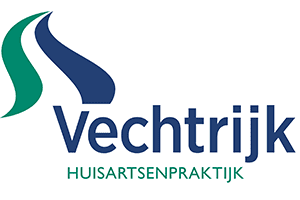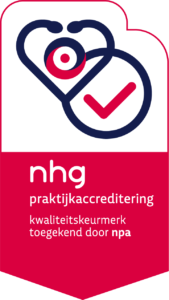
afspraak maken of spoed
0294200020
Korte Muiderweg 2a
1382LR Weesp
Elke werkdag open van
Maandag - vrijdag 8:00 - 18:00
- Home
- Praktijkinformatie
- Algemene praktijkinformatie
- Missie en visie
- Praktijk nieuws
- Contact
- Medewerkers
- Doktersassistente
- Praktijkondersteuner GGZ
- Vakantie en afwezigheid
- Onderzoeken & Ingrepen
- 24-uurs bloeddrukmeting
- Athercoomcyste verwijderen
- Bevolkingsonderzoek Baarmoederhalskanker (uitstrijkje)
- ECG
- Enkel-Arm-Index (EAI)
- Hormoonstaafje plaatsen
- Oren uitspuiten
- Partiële nagelextractie (ingegroeide teennagel)
- Shave excisie (verwijderen van huidafwijkingen)
- Spiraal plaatsen
- Spirometrie (longfunctieonderzoek)
- Stansbiopt
- Urineonderzoek
- Wratten aanstippen
- Doktersverklaring
- LSP
- Gedragsregels
- Klachtenregeling
- Privacyverklaring
- Zelfzorg
- English
- Nigtevecht
- Inschrijven
- Spoed
- Home
- Praktijkinformatie
- Algemene praktijkinformatie
- Missie en visie
- Praktijk nieuws
- Contact
- Medewerkers
- Doktersassistente
- Praktijkondersteuner GGZ
- Vakantie en afwezigheid
- Onderzoeken & Ingrepen
- 24-uurs bloeddrukmeting
- Athercoomcyste verwijderen
- Bevolkingsonderzoek Baarmoederhalskanker (uitstrijkje)
- ECG
- Enkel-Arm-Index (EAI)
- Hormoonstaafje plaatsen
- Oren uitspuiten
- Partiële nagelextractie (ingegroeide teennagel)
- Shave excisie (verwijderen van huidafwijkingen)
- Spiraal plaatsen
- Spirometrie (longfunctieonderzoek)
- Stansbiopt
- Urineonderzoek
- Wratten aanstippen
- Doktersverklaring
- LSP
- Gedragsregels
- Klachtenregeling
- Privacyverklaring
- Zelfzorg
- English
- Nigtevecht
- Inschrijven
- Spoed
Dutch vaccination programme against COVID-19
Dutch vaccination programme against COVID-19
In 2021 everyone aged 18 and over in the Netherlands will be invited to get vaccinated against COVID-19. Being vaccinated will protect not only you, but also your family, friends and vulnerable people in your surroundings. Once the majority of people are immune to coronavirus, there won’t have to be so many coronavirus restrictions.
How it works
Your body makes antibodies
The first COVID-19 vaccines to be approved for use on the European market were developed by BioNTech/Pfizer and Moderna. These vaccines contain mRNA, which makes your body produce a protein that looks like a coronavirus protein. Your immune system gets triggered by this protein and makes antibodies against coronavirus. So if you come into contact with coronavirus in the future, you’ll be protected by those antibodies and will be very unlikely to get COVID-19.
The mRNA in the vaccine is broken down naturally by your body. mRNA vaccines can’t get into your DNA. So they can never change anything in your genes.
The BioNTech/Pfizer and Moderna are about 95% effective. This means people who have been vaccinated are 95% less likely to get COVID-19 than people who haven’t been vaccinated. Not everybody reacts to vaccines in the same way. Some people still get ill, even if they’ve been vaccinated. But when that happens, their symptoms are less severe. The vaccines have also proved effective for people in higher-risk groups. There is no evidence that the vaccine is less effective against the new variants.
Even if you’ve had COVID-19, it’s still good to get vaccinated. Because having had the disease once doesn’t mean you can’t get it again.
Safety
Vaccine safety is paramount
Every vaccine that is approved for use has first been tested on tens of thousands of people. COVID-19 vaccines have to meet the same strict safety standards as all other vaccines. The manufacturers of COVID-19 vaccines have to go through the same procedure to make a vaccine and get it approved. So we know that these vaccines are safe and that they offer good protection against the virus. It’s not certain exactly how long this protection lasts. This is something that still needs to be researched. Just like with any other vaccine or medicine, there’s always a risk of side effects. But it’s rare for vaccination to cause serious reactions.
The European Medicines Agency (EMA) and the Medicines Evaluation Board (CBG) assess all COVID-19 vaccines in terms of:
- safety
- effectiveness
- quality.
Health Council of the Netherlands
The Health Council also checks to see whether a vaccine meets all the requirements and is suitable for the target groups in question.
Development
Rapid vaccine development isn’t compromising safety
COVID-19 vaccines are being developed faster than generally happens with vaccines. But the strict safety standards continue to apply. There are a number of reasons why these vaccines could be developed so quickly:
- All over the world, large numbers of researchers are working together to produce safe COVID-19 vaccines.
- Researchers are also carrying out the different stages of clinical trials simultaneously, rather than consecutively. That saves time.
- These vaccines are also being assessed more speedily: regulatory authorities are being given access to interim research results.
- So the development of COVID-19 vaccines follows the same procedure as any other vaccine, just more quickly.
Type of vaccine
More than one suitable vaccine
Since the beginning of 2021, COVID-19 vaccines have been available from various manufacturers. Experts are looking closely at who should get which vaccine. This partly depends on which vaccine is best suited to a particular target group. For example, some vaccines work very well for older people or people with certain medical conditions. Where possible, vaccines will be given to the groups for whom they are most suitable.
A registration system will record which vaccine you were given. People need a second dose of the same vaccine for full protection against COVID-19. So registration is important, not just to invite people to get their second dose, but also to know how many people have already been vaccinated and whether the vaccine is effective and safe.
Bron: Rijksoverheid
